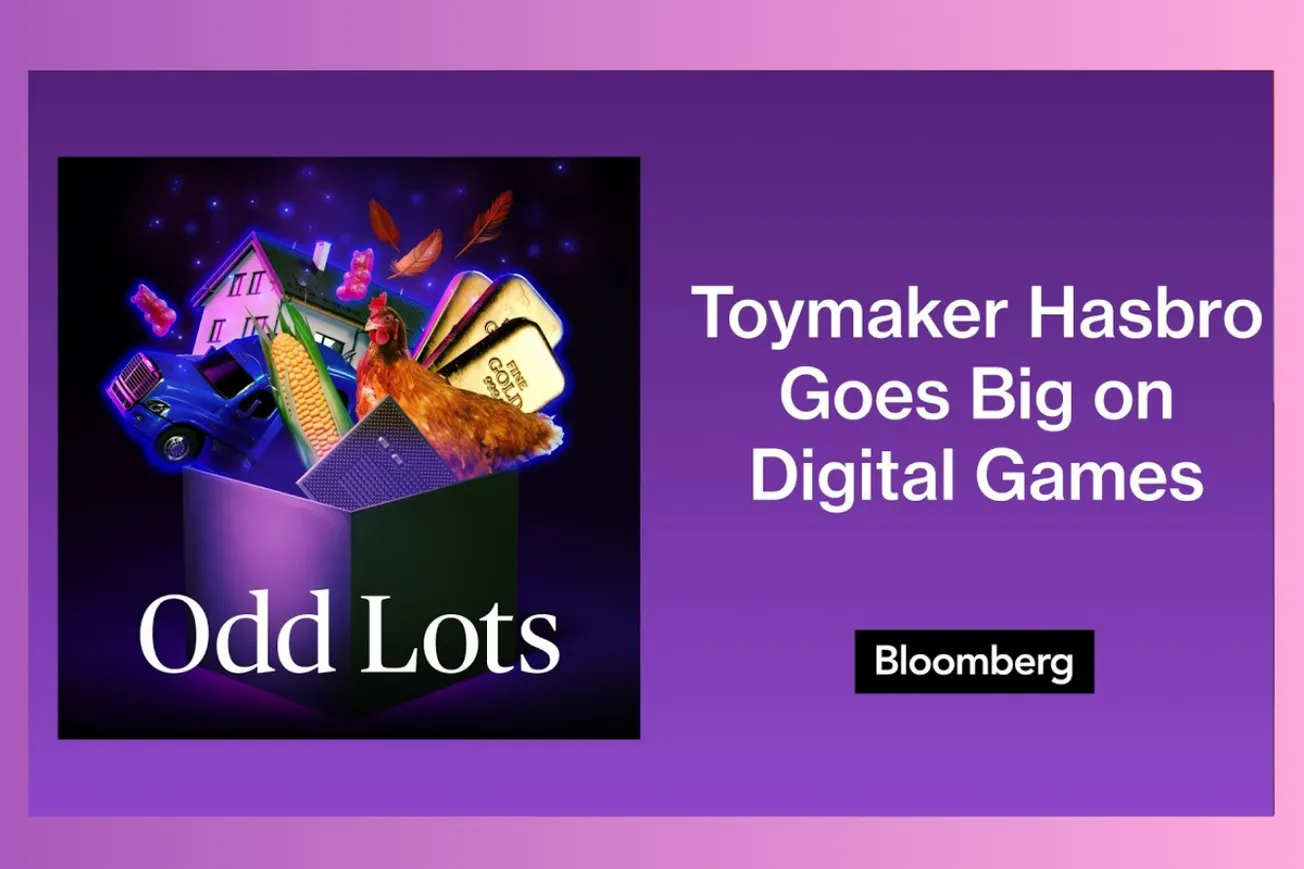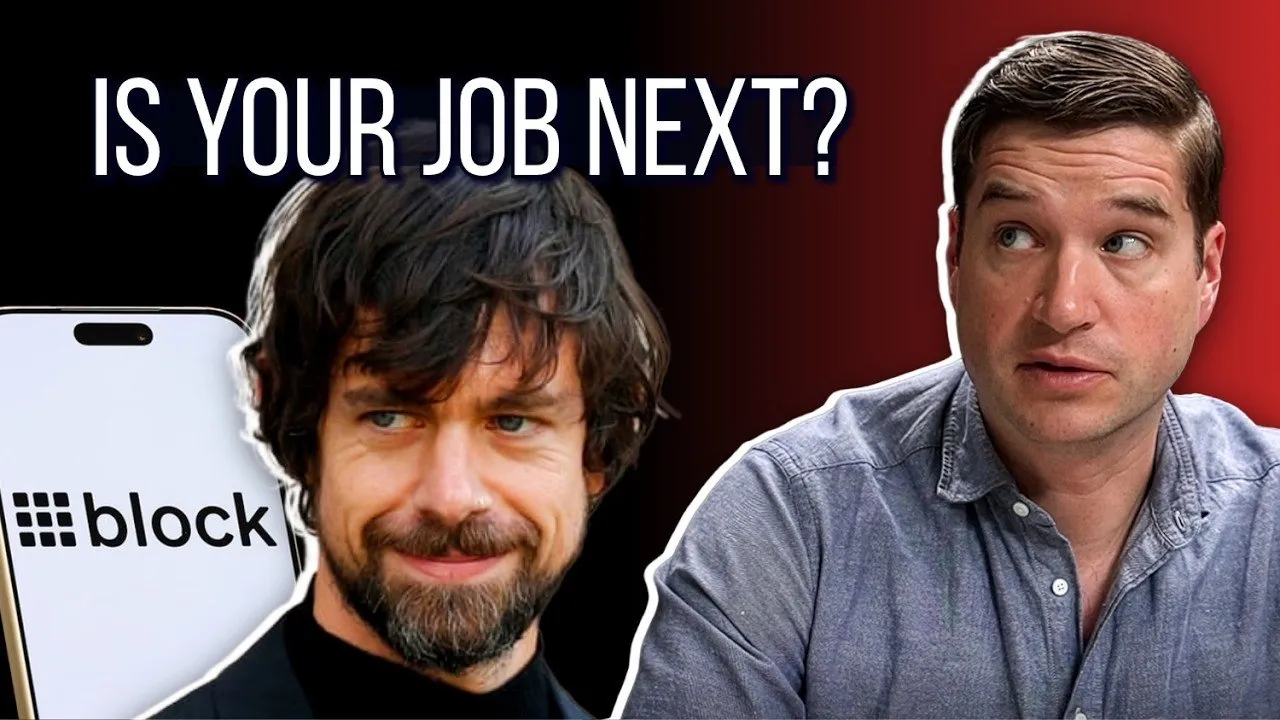Table of Contents
Hasbro CEO Chris Cox reveals how the 160-year-old toy company transformed Monopoly into a $3 billion mobile gaming phenomenon while balancing physical and digital experiences.
Key Takeaways
- Monopoly Go has generated over $3 billion in revenue since launching in April 2023, becoming the most successful mobile game outside China in history
- Hasbro games are present in over 90% of US households, providing a massive foundation for digital expansion
- The digital gaming market reaches 700-800 million players globally, compared to 70 million physical hobby game players
- Successful mobile games require multiple engagement loops and social components to avoid the "shark fin effect" of rapid popularity decline
- Physical games are experiencing growth as people seek authentic connection and screen-free social experiences
- AI is being embraced as a creative tool, with 100% of CEO Chris Cox's D&D groups using AI for character development and storytelling
- Hasbro has 35 entertainment projects in development, leveraging brands like Transformers for cross-platform success
- The company prioritizes human creativity while exploring ethical AI implementation for user-generated content tools
- Magic the Gathering's "Universes Beyond" collaborations with Marvel, Walking Dead, and other franchises drive the most successful new player acquisition
Timeline Overview
- 00:00-15:00 — Introduction to Monopoly's fascinating socialist origins, discussion of various Monopoly editions, and introduction of Hasbro CEO Chris Cox with his extensive gaming background from Xbox development to Wizards of the Coast
- 15:00-30:00 — Deep dive into Hasbro's gaming strategy, explanation of physical vs digital market sizes, Cox's personal gaming journey from Dungeons & Dragons at age 10 to modern game development and industry growth patterns
- 30:00-45:00 — Monopoly Go business model breakdown, social gaming mechanics, revenue generation through dice purchases, unprecedented scale challenges, and comparison to other successful mobile games like Pokemon Go and Candy Crush
- 45:00-60:00 — Analysis of mobile gaming retention rates, "shark fin effect" phenomenon, game success metrics including D1/D7/D30 retention benchmarks, and distinction between premium games vs games-as-a-service models
- 60:00-75:00 — Physical gaming renaissance discussion, cultural transmission of games across generations, Magic the Gathering expansion strategy, "Universes Beyond" collaborations with Marvel and other franchises, and balancing tradition with innovation
- 75:00-90:00 — Entertainment partnerships including Transformers movies generating 90% toy sales uplift, 35 projects in development, Monopoly movie with Margot Robbie's production company, and cross-platform synergies between films and physical products
- 90:00-105:00 — AI impact on gaming industry, ethical considerations for artists and creatives, user-generated content trends in D&D communities, virtual tabletop development, and responsible AI deployment strategies for creative industries
Monopoly's Digital Transformation Revolution
- Monopoly Go launched in April 2023 and has already generated over $3 billion in revenue, making it the most successful mobile game outside China in history according to Cox's earnings call revelations
- The mobile game captures the essence of the original board game's "light-hearted stabbing your friends in the back" mechanics through digital raids, mini-games, and property collection systems that mirror physical gameplay dynamics
- Revenue generation focuses on dice purchases that enable extra moves and turns, following a freemium model where players can enjoy the game without spending but may pay for competitive advantages
- The game's unprecedented scale creates unique challenges, as Cox explains: "When you have an N of one there aren't a lot of other games that you can go compare against and say oh it's going to behave like X"
- Seasonality patterns remain unclear due to the game's unique position, though similar casual games like Candy Crush and Pokemon Go provide some guidance for long-term planning and engagement strategies
- Hasbro plans to release a physical board game version of Monopoly Go, completing a full circle from board game to mobile app back to physical format with digital-inspired mechanics
The transformation represents more than simple digitization. Monopoly Go demonstrates how traditional gaming companies can leverage their intellectual property in entirely new markets while maintaining core brand identity and player engagement principles.
Gaming Industry Business Models and Success Metrics
- Mobile games and games-as-a-service focus on retention rates rather than upfront sales, with successful titles maintaining D1 retention above 40-50%, D7 retention above 20-30%, and D30 retention in the 10-15% range
- Premium games follow traditional console models with $50-70 upfront costs and focus on delivering satisfying 20-100 hour experiences rather than long-term daily engagement loops that characterize mobile gaming
- The "shark fin effect" describes games that achieve rapid popularity but fade quickly, typically affecting titles with simple mechanics that lack multiple engagement loops and social components for sustained player interest
- Successful long-term mobile games like Clash of Clans and Candy Crush build complexity gradually while introducing social elements that transform individual gameplay into group challenges and community experiences
- Magic the Gathering Arena exemplifies successful retention with "astronomical" rates measured in months and years rather than days, representing the gold standard for trading card game digital adaptation
- Games-as-a-service revenue depends on player engagement frequency and duration, creating opportunities for fair profit generation through extended play sessions and community building rather than one-time transactions
Cox emphasizes that enduring games require multiple layers of complexity and social interaction. The most successful titles in the US market today include games that have maintained top-20 positions for over five years, with several lasting eight to ten years through continuous evolution and community engagement.
Physical Gaming Renaissance and Cultural Connection
- Physical games are experiencing growth as people "hunger for authentic connection" and seek rule-based frameworks for creating meaningful social interactions without digital distractions
- Hasbro games maintain presence in over 90% of US households, with brands like Monopoly, Clue, and Candy Land achieving near-universal brand awareness across American families
- Games provide structured opportunities for intergenerational bonding, with Cox noting how cultural transmission occurs primarily through family game nights where parents pass treasured childhood memories to their children
- The Wizards Play Network operates over one million play events annually across 8,000-10,000 hobby stores worldwide, creating community spaces for Magic the Gathering and D&D players to find like-minded friends
- Board game cafes and similar third spaces are expanding in urban areas, providing venues for social gaming that complement rather than compete with digital alternatives
- Cox's family gaming experiences illustrate this trend perfectly, with his children learning Magic and D&D directly from him while developing their own relationships with games like Monopoly through shared family experiences
Physical gaming serves a unique social function that digital alternatives cannot fully replicate. Cox explains that games create "an easy rule book for creating authentic connection" that brings families together around tables with phones down and engagement focused on shared experiences.
Magic the Gathering's Strategic Evolution
- Magic the Gathering represents a billion-dollar-plus trading card game that invented the entire trading card genre and maintains full backward compatibility across nearly 25,000 unique cards dating back to 1993
- The "Universes Beyond" strategy brings external brands like Marvel, Walking Dead, and Warhammer 40K into Magic's play platform, creating what Cox calls "by far the most successful new player introduction that we've ever done in physical cards"
- Cross-brand collaborations follow proven strategies used by companies like Fortnite with seasonal content and Lego with licensed properties, enriching the play system while maintaining core game mechanics and compatibility
- Traditional Magic players represent a minority who resist changes, but the vast majority embrace new flavors and intellectual properties that make the community "richer and more vibrant" according to Cox's player feedback
- The strategy transforms Magic from a game trapped in amber into an evolving platform that attracts new audiences through familiar brands while preserving 30 years of game development and community building
- Future collaborations continue expanding the universe, with Cox enthusiastically describing scenarios like "Rick battling Iron Man set against a bunch of Space Marines from Warhammer 40K" as examples of creative possibilities
This evolution strategy demonstrates how traditional gaming properties can expand their reach without alienating core audiences. Cox notes that completionists and traditionalists represent a "significant minority" while the majority welcome innovations that bring fresh players and perspectives to established communities.
Entertainment Partnerships and Cross-Platform Success
- Transformers represents a $5 billion box office franchise ranking among the top 10 movie franchises of all time, with Transformers One scheduled for September release as an origin story directed by Toy Story's Josh Cooley
- Movie partnerships generate substantial toy sales increases, with Transformers: Rise of the Beasts creating a 90% point-of-sale uplift during the 12-week movie period and 30-40% annual increase overall
- Hasbro maintains 35 entertainment projects in development across various properties, including a Monopoly movie executive produced by Margot Robbie's Lucky Chap Entertainment production company following Barbie's success model
- The Clue movie represents another high-profile project leveraging classic board game properties for theatrical releases, continuing the trend of translating beloved games into cinematic experiences
- Cross-promotional opportunities extend beyond movies, with successful tie-in products like Barbie Monopoly becoming one of the most successful Monopoly versions released in recent years
- Gem from the 1980s represents untapped intellectual property potential, with Cox acknowledging the franchise could generate significant audience interest if developed for modern entertainment platforms
Entertainment partnerships create powerful synergies between physical products and cultural moments. Cox explains that while games might not create the broad cultural impact of major Hollywood movies, they generate "millions upon millions of very powerful personal moments" that establish deep emotional connections with brands.
AI Integration and Creative Industry Impact
- Cox positions himself as an "AI Optimist" who sees artificial intelligence as "incredibly playful very high impact set of technologies that really can light up the average player the average fans creativity"
- Current layoffs at Hasbro affect toy and commercial organizations but specifically exclude Wizards of the Coast creative roles, with Cox emphasizing that "we really prize design Talent art talent and generally creativity"
- AI deployment requires "very very responsible" implementation with measured pacing to ensure creatives receive fair compensation for their work, reflecting Hasbro's commitment to valuing human creativity and creators
- Cox's personal D&D groups demonstrate AI adoption patterns, with "100%" of players across three different gaming groups using AI tools for character crafting, adventure inspiration, imagery, and audio creation
- User adoption drives business decisions, as Cox notes: "When your users are telling you that they're using a tool and that they're valuing it I think you have to take notice and you have to figure out how to harness it"
- Future AI tools will focus on ethically trained systems using Hasbro's art and intellectual property to create user-generated content platforms, particularly for the upcoming virtual tabletop built on Unreal Engine 5
The company's approach balances innovation with ethical responsibility. While finished products will remain "human created and human finished," AI-enabled tools will help users bring their imaginations to life through platforms that respect creator rights and maintain quality standards.
Hasbro's transformation from traditional toy manufacturer to digital gaming powerhouse demonstrates how established companies can leverage decades of brand equity and cultural connection to succeed in new markets. Cox's vision embraces both technological innovation and timeless human desires for authentic connection, positioning the company for continued growth across physical and digital gaming landscapes.





